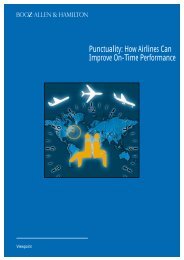The sentence
The sentence
The sentence
Create successful ePaper yourself
Turn your PDF publications into a flip-book with our unique Google optimized e-Paper software.
3. In <strong>sentence</strong>s like:<br />
Our new secretary, who can type faster than anyone I have ever met, has completely<br />
reorganized our office.<br />
Time Magazine, which is available in every country in the world, is published every<br />
week.<br />
the relative clauses add ‘extra information’. If we take them out of the <strong>sentence</strong>s, we<br />
won’t seriously change the meaning. We call these non-defining clauses (they do not<br />
‘define’) and we use commas before and after them.<br />
4. Sometimes we have to decide when the information is ‘essential’ or extra’ and we may or<br />
may not use commas. We must decide this for ourselves:<br />
He asked lots of questions (,) which were none of his business (,) and annoyed everybody.<br />
Sentences with two meanings<br />
<strong>The</strong> use or omission of commas round relative clauses can sometimes after the meaning:<br />
My wife, who is in Paris, will be returning tomorrow. Without commas, this could suggest that<br />
I have another wife who is (or other wives who are) somewhere else!<br />
H. <strong>The</strong> complex <strong>sentence</strong>: time, place, manner<br />
Adverbial clauses of time, place and manner<br />
Introduction to adverbial clauses of time, place and manner<br />
Suppose you want to write a paragraph like this:<br />
When we visited London, we went to the Tower. We saw the spot where so many famous<br />
people had lost their heads! We felt as if we had travelled back in time to another world!<br />
If we want to speak or write like this, we have to master adverbial clauses of time<br />
(answering When?), place (answering Where?) and manner (answering How?)<br />
Adverbial clauses of time (past reference)<br />
To say when something happened in the past, we use ‘joining words’ (or conjunctions) like<br />
when, after, as, as soon as, before, by the time (that), once, since, until/till, while:<br />
When we visited London, we went to the Tower.<br />
Adverbial clauses of time (future reference)<br />
When the time clause refers to the future, we normally use the simple present after:<br />
after, as soon as, before, by the time, directly, immediately, the moment, till, until and when:<br />
<strong>The</strong> Owens will move to a new flat when their baby is born. (Not *will be born*)<br />
Adverbial clauses of place<br />
To say where something happens or happened, we use conjunctions like where, wherever<br />
anywhere and everywhere: That dog follows me wherever I go.<br />
7




